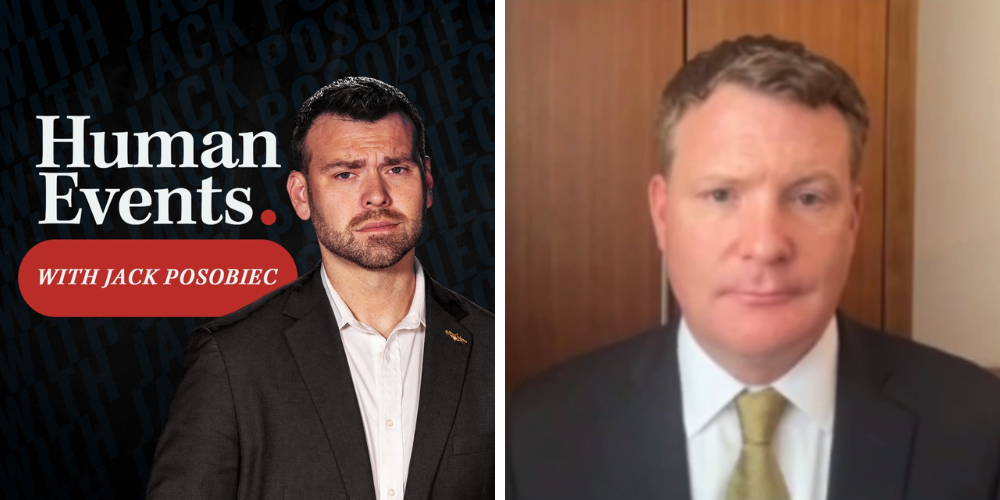Party platforms have both an immediate and a long term role.
For the immediate future they should help win the election and communicate the core values and proposals that rally activists and voters to the party and its candidate for president.
There are a number of obvious planks that have been in our recent platforms including Right to Life, defending the Second Amendment, balancing the budget, etc.
However, for the long run a party platform can also play a very useful role in educating the country and setting the stage for a big discussion about big ideas.
As we prepare for the 2012 platform it is worth looking back to the first Republican platform in 1856 for an idea of how influential these documents can be. In the 1856 platform, the party made a series of commitments that quite literally changed American history. Most obvious was the platform???s commitment to opposing the extension of slavery in the territories???a stand that helped lead to the Civil War and the abolition of slavery.
Pivotal platforms
The 1856 platform previewed Lincoln???s moral arguments for the abolition of slavery, harkening ???our Republican fathers, [who held] it to be a self-evident truth, that all men are endowed with the inalienable right to life, liberty, and the pursuit of happiness, and that the primary object and ulterior design of our Federal Government were to secure these rights to all persons under its exclusive jurisdiction.???
The platform made another commitment that was soon to become a major policy initiative: the development of a transcontinental railroad.
This commitment was a defining characteristic of the emerging Republican Party. In 1859 candidate Abraham Lincoln stood on the banks of the Missouri River at Council Bluffs, Iowa and pledged his support for a transcontinental railroad.
This commitment to railroads as a key part of a better future was not something new for Lincoln. As early as his very first campaign for state legislator in 1832, at the age of 23 (he lost), Lincoln had a railroad construction plank in his campaign literature. The amazing thing was that Lincoln had never seen a train. The railroad engine was only invented in Great Britain in 1829 (Stephenson???s ???the Rocket???) and the first engine arrived in the United States in 1829. Yet Lincoln read about it in a newspaper and intuitively understood how important railroads would be to cross the vast prairies of the American West.
Lincoln, the first Republican president, was fascinated by technology. He made a good living as a railroad attorney, winning a key case that enabled railroads to become the dominant method of transportation. He is the only president to hold a patent for a technological development. And as president he displayed great interest in new technologies for winning the Civil War.
The 2012 Republican Platform Committee should consider deeply this sense of historic technologies, long-term developments and writing to set the framework for the future as well as to win the immediate election.
There are three particular areas in which Republicans need to take a long view and write an historic section of the platform: 1. Radical Islamists, 2. Religious Liberty, and, 3. Innovation as the central engine of both economic growth and government reform
Let me expand on each of these and explain why we need them as a key part of the dialogue about America???s future.
| 1. |
Radical
Islamists
Radical Islamists are the greatest immediate threat to American safety and security.
We are currently engaged in a variety of countries (Afghanistan, Pakistan, Iraq, Somalia, Yemen, etc). We have enemies actively plotting to try to kill us both at home and abroad. From a terrorist attack at Fort Hood, Texas, which killed 13 Americans, to a failed car bomb in Times Square, New York, which would have killed hundreds if it had worked, we are threatened in our own country. We have one nation led by radical Islamists (Iran) trying to get nuclear weapons despite a concerted effort by much of the world to isolate and sanction them into stopping. We have another semi-ally, semi-opponent (Pakistan) which already possesses well over 100 nuclear weapons and which is deeply penetrated by radical Islamist factions. There is violence and instability in Egypt, Syria, and Libya. There have been recent acts of violence in the Sinai desert on the Israeli border for the first time in a generation.
Yet we have no clear national definition of the threat. In fact when the National Security Five (five members of the House) dared to ask about Muslim Brotherhood influence in the administration, they were attacked for daring to ask the obvious. The bias in our elites against having an honest conversation about radical Islamists is enormous.
Former British Prime Minister Tony Blair has warned that we are facing enemies who seek supremacy not equality. He has also warned that the Western elites are ???asleep??? (his term).
The Republican Platform Committee has a great opportunity to help educate America and the world by including a clear and decisive section on the threat from radical Islamists and the need for a national strategy that deals realistically and effectively with a worldwide movement seeking to establish Islamist supremacy.
| 2. |
Religious
liberty
Religious liberty is under assault from the secular left and Obama???s administration in an unprecedented manner. The left is attacking Christians in a variety of settings. In many ways Christianity is incompatible with some of the most cherished beliefs of the modern left. The result has been decisions that make it impossible for religious institutions to survive and for religious people to openly express their beliefs.
The Obama administration???s war on the Catholic Church is only the most visible and focused of the various assaults. There are serious efforts underway to turn parts of the Bible into ???hate crimes??? (something which already exists in a number of countries in Europe, for example).
The Republican Platform Committee has a unique opportunity to highlight the basic principles of American Exceptionalism. The 2012 platform should emphasize that no government can come between man and God. The platform should emphasize the degree to which our rights come from our Creator as our Declaration of Independence asserts.
| 3. |
Innovation in government, private sector
Innovation is the engine of economic growth and government reform.
History tells us that innovation is the primary driver of economic growth, so in this time of high unemployment and a struggling economy, the Republican party should make a point of supporting genuinely pro-innovation policies. By that I don???t mean the folly and corruption of the left???picking winners and losers and rewarding cronies with government funds???but rather, policies that make it easiest for innovators to innovate.
There has been a disheartening tendency to reduce political debate to more or less of the same kind of bureaucratic spending. But opponents of big government are perhaps more likely to succeed if they offer a smarter, more efficient, more pro-innovation alternative.
We do need cheaper government, but we also need smarter government.
American industry has learned to innovate decisively and constantly. Daily improvement is a key mantra of successful manufacturers. This is antithetical to the bureaucratic model. By imposing the modern management techniques of the private sector on the bureaucracy, we could have genuine government reform that gives us more innovation and saves up to $500 billion a year in waste.
Similarly, the right kind of advances in health outcomes could save trillions of dollars. Brain research could lead to breakthroughs in autism, Alzheimer???s, Parkinson???s, mental health, post-traumatic stress disorder and traumatic brain injuries, which would save more money than any current spending cuts can conceive of. The application of brain research to better learning systems could lead to a revolution in our ability to educate people.
Innovative approaches to defense procurement could save hundreds of billions of dollars while actually getting newer, better equipment to our troops faster and in greater quantities.
The use of credit card anti-fraud expert systems from American Express, Visa and MasterCard could save well over $100 billion a year in government mismanagement of healthcare and other payments.
Prizes and other innovative systems could reduce the cost of getting back to the moon by 90 percent from the $150 billion originally proposed in a government monopoly program run by the NASA bureaucracy to less than $15 billion in private sector entrepreneurial efforts.
Innovation is the heart of the American experience. From Benjamin Franklin inventing the lightening rod, bifocal glasses and the Franklin stove to the founders writing a patent office into the Constitution, America has always been an innovative country.
The Republican Party should recommit to that spirit of innovation and pledge to find a better, more prosperous, healthier and safer future with limited government, balanced budgets, and better lives through a sustained commitment to innovation.
These three areas will help create an historic document that will be studied for years to come. It is the kind of platform the American people deserve.




